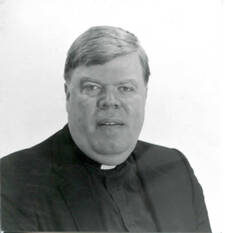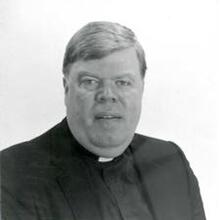The Vatican has recently become a fount of advice on how to preach. Pope Francis’ apostolic exhortation “The Joy of the Gospel” gives tips on the Sunday sermon, and the Congregation for Divine Worship’s new Directory on Preaching analyzes the nature of the liturgical homily. As a veteran of 60 years in the pews and 30 years in the pulpit, I would like to offer my own advice on how not to preach.
1. It’s all about you. Keep the sermon strictly autobiographical. Your congregation is dying to know all about your last vacation. There’s no need to discuss that pesky reading about Abraham and Isaac and the knife.
I recently heard a sermon about a priest’s socks. Father explained how difficult it is to keep pairs of socks together. He noted his preferred detergent for washing socks and the advantages of using a clothesline over a dryer. He said there was a controversy over whether priests should wear all-black socks or whether they could add stripes. (News to me.) We kept waiting for the spiritual punchline. Was the lost sock like the lost sheep in the parable of the Good Shepherd? It remained a mystery. The sermon concluded with the revelation that he found doing the laundry difficult at times.
On a darker note, I once heard a sermon in which the preacher discussed the problem of resentment. The theme matched the Gospel, which featured the apostles’ jealous squabbling among themselves. Warming to his subject, the preacher described his own resentment against his brother (the prize-winning athlete), his sixth-grade teacher (too critical) and then his dear mother (too distant). As we cringed into our missalettes, I wondered if Doctor Phil would rush from the sacristy to take over the bathos in the sanctuary.
You were not ordained to tell your own story. You were ordained to proclaim someone else’s.
2. Rely on the Holy Spirit alone. There’s no need to prepare.
One of the popular homiletic genres these days is the Magellan sermon. In the space of 20 minutes, the congregation is treated to a tour of the world as the preacher unloads a catalogue of random, unrelated thoughts. In one recent Magellan improvisation, we learned that Samuel heard a noise like a whisper, that we should be patient with the hearing-impaired, that the turnout for the Christmas bazaar was just great (applause), that recent events in the Middle East are disturbing and that we should be careful about what we post on Facebook. And, oh, there’s a mistake in the bulletin. The second collection will be taken up for our music ministry, not for scholarships to the grade school.
Yes, you are overworked. Still, your parishioners have a right to a beginning, middle and end in your sermon. They hunger for one, clear, sustained insight into Scripture, the fruit of your prayer and study on the biblical lessons.
3. Keep it light. Always prefer the sentimental to the doctrinal. Don’t bother the congregation with such complications as the Atonement. Keep it beige and soothing.
It was Easter Sunday in a packed church. The preacher began by telling us that Christian hope means “Tomorrow will always be more beautiful than today.” We waited for the theological development. The resurrection of the body? Immortality? The last judgment? We received only more of the same magical thinking, closer to Hallmark Cards than to the Gospel according to St. Luke we had just heard.
Now permit me to offer two positive counsels to preachers.
First, fall in love with God’s word in Scripture. Let the great hymn of creation, fall and redemption become your personal theme song. Walk around in the Bible. Pitch your tent in it. If possible, learn biblical Hebrew and Greek. You are giving your congregation a word of hope that no government and no psychological technique can provide, because it is a hope rooted in Christ’s conquest of sin and death itself.
Second, love the people addressed by your sermon. A distinguished Protestant preacher once remarked that he began each week with an hour in his church. He walked up and down the aisle, imagining the various parishioners he would see on a typical Sunday. He asked God to show him how the sermon he was preparing could actually meet their particular needs and questions. It is in the persevering study of God’s word and in this loving intercession for one’s listeners that the Holy Spirit really begins to teach us how to preach.








